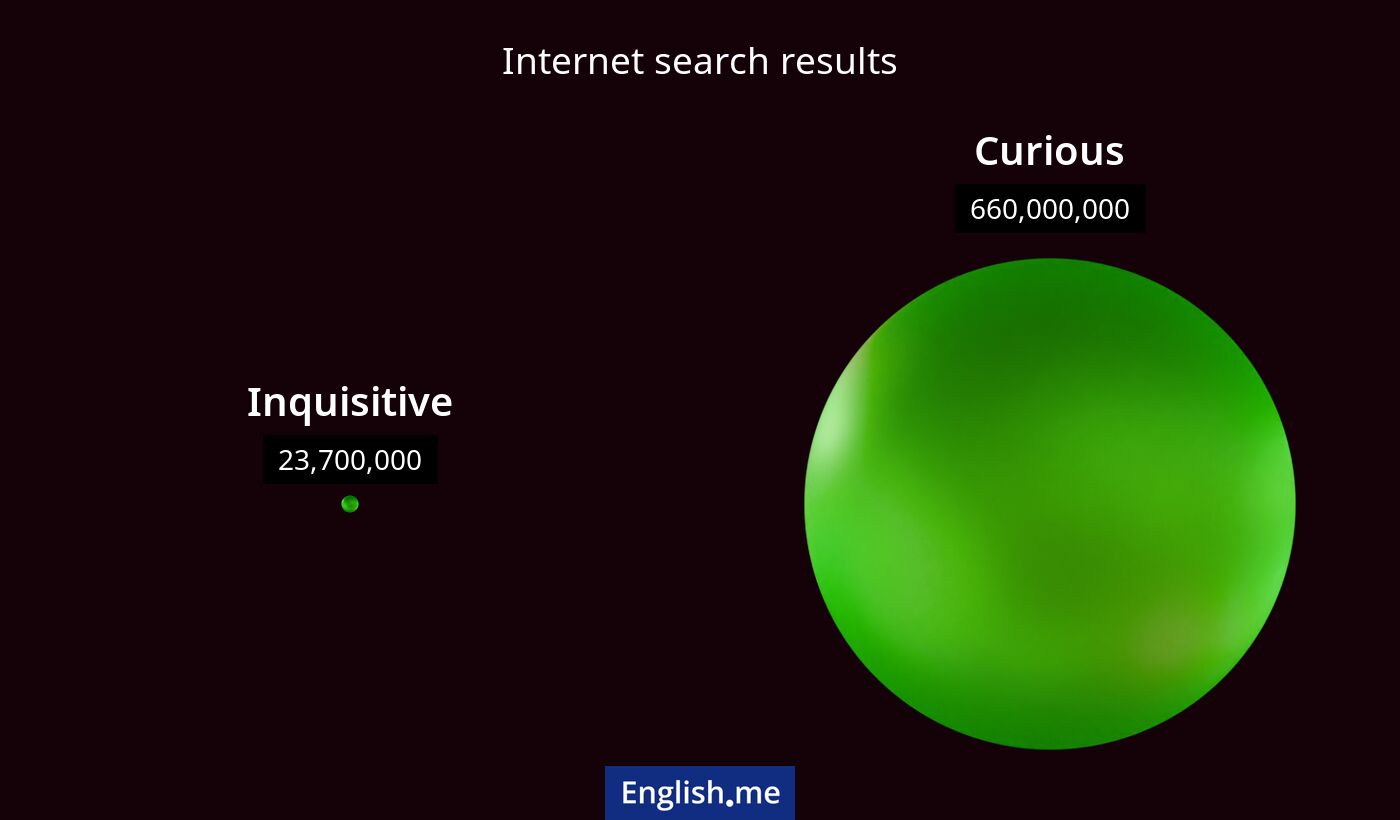"Inquisitive" vs. "curious": the battle of nosy natures
Reviewed and edited by  Lloyd Cooper 01/11/2024, 18:45
Lloyd Cooper 01/11/2024, 18:45
English.me team member

 What is similar?
What is similar?
Both "inquisitive" and "curious" describe a strong desire to know or learn something. They both refer to an interest in acquiring knowledge and can be used to describe people who ask questions and seek information.
 What is different?
What is different?
"Curious" is a more general term for a desire to learn or know about anything, and can be used in a broad range of contexts, sometimes referring to an idle interest. "Inquisitive" often has a more focused connotation, implying a deeper desire to investigate or explore, sometimes perceived as probing or intrusive.
 Which one is more common?
Which one is more common?

 Examples of usage
Examples of usage
Inquisitive- The child had an inquisitive mind, always asking questions about how things work.
- The journalist's inquisitive nature led her to uncover the truth.
- He had an inquisitive look, examining each detail curiously.
- She was curious about the world around her and loved to travel.
- I'm curious to know how this machine operates.
- The cat watched the moving object with a curious gaze.

 English
English español
español française
française italiano
italiano deutsche
deutsche 日本語
日本語 polski
polski česky
česky svenska
svenska Türkçe
Türkçe Nederlands
Nederlands